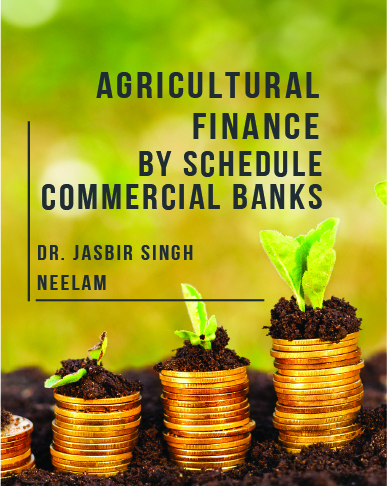
About The Authors

Dr. Jasbir Singh is an eminent scholar in the field of Economics and Money & Banking. He (Associate Prof. (Dy. Director) in Maharaja Surajmal Institute under IP university) is M.A Economics (specialization in Money and Banking), M. A Rural Development, MBA in IBM, M Phil in Eco. Ph D in Eco (in Banking), from M. D. University, UGC/NET qualified and 23 years teaching experience in MDU as well as IP university. He has published more than 100 research papers in Scopus, ABDC, UGC Care, national and international journals. He has presented more than 30 research papers in various national and international conferences.
He has attended more than 40 national and international seminar and conferences as like IIT Roorkee. He is Editor in- Chief of the African Journal on Economic and Development Polices (AJEDP) and Member of Editorial Board in Journal: International Invention Journal of Arts and Social Sciences (IIJASS), and in Journal: Comprehensive Research Journal of Management and Business Studies (CRJMBS). More than 13 students have completed their M. Phil and more than 10 students their Ph. D under his supervision. Four books have published.

Ms Neelam is an eminent scholar in the field of Economics. She is working as a PGT economics in Delhi Administration. She is M. A Economics, M. Phil (Economics), M. Com, M.A Hindi and B. Ed.
About The Book
Indian economy is based on the agriculture. At the time of independent contribution of agriculture was more than 50 percent and more than 72 percent population of India was depended. But contribution of scheduled banks in agriculture finance was hardly 3 percent. It was not sufficient. Private money lenader were played a dominant role in agriculture finance. But they were charging the very high rate of interest (24-60 percent). At present also secluded banks are not able to meet the agriculture total credit demand. Policy makers in India have long recognised the need to provide short- and long-term institutional credit to agriculture at reasonable rates of interest for meeting farmers’ production needs. This recognition came primarily as the moneylenders and other non-institutional sources charged exorbitant rates of interest to farmers who often had to mortgage, and sometimes, sell their lands to clear their debts. After independence, credit institutions serving the agricultural sector were developed in several phases. In the first phase from 1947 to 1969, cooperative agencies were the primary vehicle that provided credit. During the second phase from 1969-75, a major development in the area of rural credit was the nationalisation of banks in 1969. The commercial banks were also assigned an important role in providing agricultural credit to supplement credit by cooperatives. The third phase, 1975-1990, saw the establishment of Regional Rural Banks (RRBs) in 1975 to provide credit to small and marginal farmers and weaker sections of society. During this phase, introduction of the concept of priority sectors in 1985, whereby the banks were enjoined to lend 18 per cent of their total credit to agriculture, was an important step for extending credit to agriculture. In the fourth phase, beginning with the financial sector reforms of the 1990s, emphasis shifted in favour of prudential regulations, and the focus on social banking got diluted. As a result, the share of agriculture in total bank credit of the scheduled commercial banks fell below the 18 per cent target. In recent years, in response to the agrarian crisis, there have been a number of initiatives to expand credit to agriculture such as the doubling of credit within three years, the issue of Kisan Credit Cards (KCCs), the introduction of institutional agencies such as agency banking and extension of the model of Self-Help Groups (SHGs) to farmers, the revitalisation of the cooperative credit structure and the Government’s acceptance of the principle of inclusive banking. This book focuses on the role of scheduled commercial banks in the development of agriculture sector.




